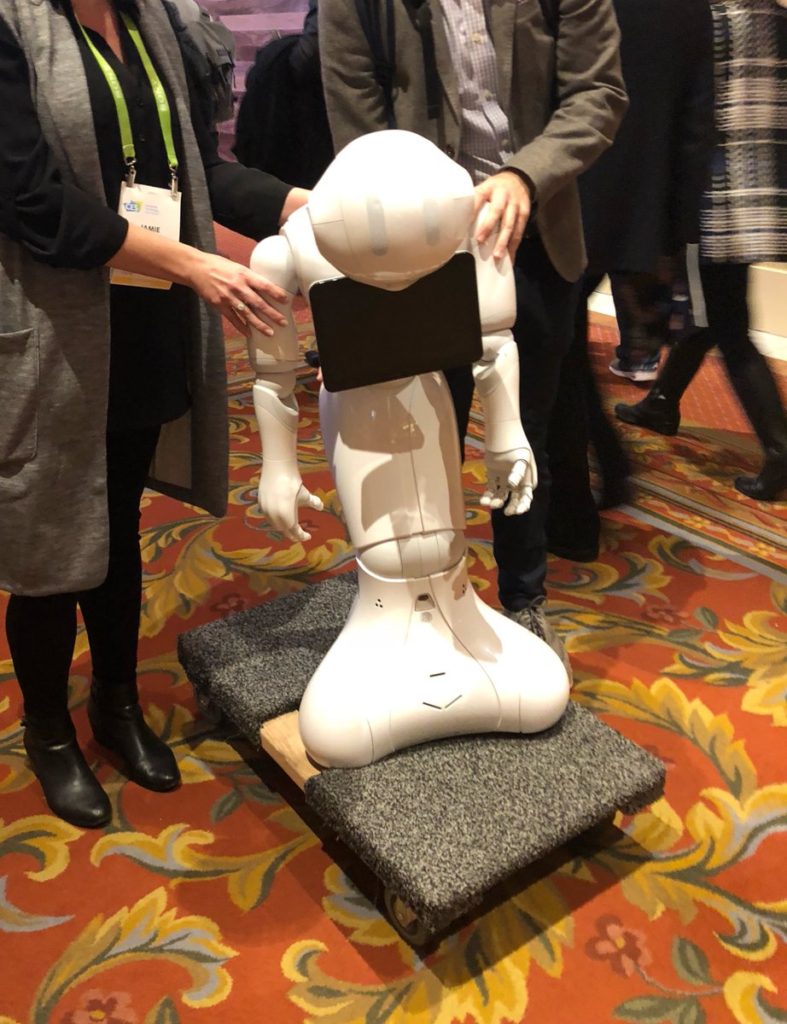 Year-end brings reckonings and reorganizations….and may leave you feeling like Pepper.
Year-end brings reckonings and reorganizations….and may leave you feeling like Pepper.
Marshfield Clinic, located in rural north central Wisconsin, eliminated its 18-person telehealth department on 1 December. It is not clear from reports whether telehealth is being eliminated (HISTalk) or whether this is being maintained by current IT staff. This follows news of ongoing financial difficulties in this network of 12 community and rural hospitals and 65 clinics. In August, they renegotiated some loans in the wake of losing $25 million that month–and their CFO departed. The health system is also in the throes of replacing a 30-year-old homegrown EHR with Cerner. Like most rural hospital systems, Marshfield has been keelhauled between increasing wage and supply costs plus the ending of CARES Act subsidies. It has had ongoing merger discussions with Minnesota’s Essentia Health. WSAW-TV 7 (Wausau WI)
Recently fast-growing Komodo Health is laying off 9%, or 78, staff. The layoffs were positioned as a ‘restructuring’ to remaining employees. Interestingly, Komodo has about 40 positions recently posted and listed as open on LinkedIn, not including its CFO who is departing at end of this year.
Komodo is reportedly planning to IPO in 2023. In early November, it completed a structured equity infusion of $200 million from Coatue and Dragoneer. Reportedly, Komodo’s annual recurring revenue is $150 million but is not yet profitable. Last March in its Series E, it was valued at a rich $3.3 billion.
Komodo is in the complex analytics business of creating data maps out of de-identified patient data. From this, they create software applications that reveal patient behaviors, can guide treatment, highlight care gaps, and, in their words, ‘reduce the global burden of disease’. Like mapping patient health journeys, everyone agrees it is valuable, but then debates on how to apply it. Is it the whole truth and nothing but? Or are my patients different? Whether strapped health systems and health plans see that Komodo’s applications are necessary, given their in-house data, with the knock-on cost of integrating it into their systems, is entirely another question that influences Komodo’s growth. TechCrunch, FierceHealthcare, Mobihealthnews
Two epharmacy operations have run into significant financial difficulties.
- Brooklyn’s Medly filed for Chapter 11 bankruptcy reorganization on 9 December, closing 20 stores. A scrappy upstart founded in 2017 that grew from a storefront in Brooklyn to over 20 physical locations in New York, New Jersey, and Philadelphia plus four same-day prescription delivery centers, they went through a cash crunch in August that derailed their filling prescriptions for close to one month. Precipitating this was their purchase of Boulder-based integrative pharmacy Pharmaca in late 2021 to add 21 locations in 20 markets across nine states, first-half losses of $35 million, and failure to obtain over the summer a $100 million loan. Medly owes about $121 million plus $47 million in trade debt, unpaid salaries, and other unsecured debt. A bidder, MedPharmaca Holdings Inc., will have an opening bid of $18.5 million at a bankruptcy auction for almost all of Medly’s assets, including the Pharmaca stores.
A complication–employees are also suing the company in a class action lawsuit for mass layoffs. 1,100 of 1,900 employees were not given up to 90 days written notice, as required by Federal and NY State Worker Adjustment and Retraining (WARN) Acts. WARN act notices were posted after the layoffs, according to the lawsuit. Employees also lost salary, commissions, bonuses, accrued holiday pay, and 401(k) contributions. Oddly, their website lists about 20 open positions, but this Editor is sure that is due to the website manager also being laid off. FierceHealthcare, Boulder Daily Camera, Digital Health Business
- Nearly 8,000 miles away, PharmEasy of Mumbai, India has laid off an undisclosed number of people in a second round of layoffs, primarily in product technology, quality analytics, and support verticals. Their problems, reported in India’s Inc42, center on mounting losses, a funding crunch, and a shelved IPO. India’s Business Standard reported that the layoffs will go into the hundreds. PharmEasy is an online store covering most of India that delivers everything from medications and lab tests to doctor referrals and Dettol.
And last in this (depressing) roundup is Boston’s OneStudyTeam’s 25% layoff of 160 employees with the usual “restructure our team going into 2023” and “streamline operations” statements, despite being used by 70% of biopharma companies. OneStudyTeam has a clinical trial workflow platform that enrolls and manages patients. As part of clinical trials holding company Reify Health, it is a sister company to Care Access, a decentralized research organization (DRO). In April, Reify added $220 million in Series E funding for $479.6 million in total, increasing its valuation to $4.8 billion. Mobihealthnews, Crunchbase









Most Recent Comments